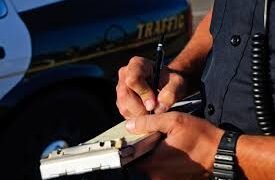Few words in fantasy literature carry as much weight as Frodo Baggins’ declaration: “I will take the Ring to Mordor.” This single sentence, spoken with hesitation but unwavering resolve, sets the course for one of the greatest adventures ever told. J.R.R. Tolkien’s The Lord of the Rings is filled with moments of courage, sacrifice, and destiny, but this moment stands out as the turning point of the entire story. It is a testament to the power of choice, the burden of responsibility, and the triumph of the human (or in this case, hobbit) spirit against overwhelming odds.
The Weight of the Ring
The One Ring is no ordinary object. Forged by the Dark Lord Sauron in the fires of Mount Doom, it holds immense power and a terrible curse. Whoever possesses it is tempted by its evil, as it seeks to corrupt even the noblest of souls. Many powerful beings, including Gandalf, Elrond, and Aragorn, refuse to bear it, fearing its influence. Yet, in the moment of decision, a simple hobbit steps forward. Frodo, small and unremarkable compared to warriors and wizards around him, takes on the burden no one else dares to carry.
This moment symbolizes an essential theme in Tolkien’s work: true strength is not about physical power but about the will to do what is right. Frodo does not know how he will reach Mordor, nor does he have a plan to destroy the Ring, but he understands that someone must try. His choice is not born of arrogance or desire for glory but from a deep sense of duty.
The Fellowship and the Burden of Leadership
Though Frodo volunteers to carry the Ring, he does not undertake the journey alone. The Fellowship of the Ring—comprising Aragorn, Gandalf, Legolas, Gimli, Boromir, Samwise Gamgee, Merry, and Pippin—is formed to aid him. However, as the journey progresses, it becomes clear that this is Frodo’s burden alone. The Ring begins to affect those around him, particularly Boromir, who tries to take it by force. Consequently, this event forces Frodo to make a heartbreaking decision: he must leave the Fellowship and go forward alone.
The Fellowship represents different strengths—wisdom, bravery, loyalty, and strategy—but Frodo’s ultimate decision emphasizes the loneliness of leadership. Many leaders, both real and fictional, face the moment when they must walk a difficult path alone, bearing the weight of responsibility. This decision cements Frodo’s transformation from a simple hobbit into a true leader.
A Journey of Suffering and Sacrifice
Traveling to Mordor is not an easy task. The road is filled with dangers—treacherous landscapes, deadly enemies, and the constant looming presence of Sauron’s watchful eye. As a result, Frodo and Sam endure hunger, exhaustion, and the Ring’s increasing weight on Frodo’s soul. The burden is not just physical; rather, it is deeply emotional and psychological.
The journey mirrors real-world struggles—whether personal hardships, battles against self-doubt, or the effort required to achieve great things. Frodo’s journey reminds us that anything worthwhile comes at a cost. Every step toward Mordor is a step away from the comforts of the Shire, symbolizing the sacrifices heroes make for the greater good.
The Power of Choice and Free Will
One of the most powerful messages in The Lord of the Rings is that heroes are not born but made through their choices. Frodo did not have to take the Ring. At any point, he could have given up, turned back, or succumbed to its power. But he didn’t. Even at the very end, when standing at the edge of Mount Doom, though he falters, it is ultimately his long journey and perseverance that lead to the Ring’s destruction.
Samwise Gamgee – The Unsung Hero
While Frodo is the Ring-bearer, Samwise Gamgee plays an equally crucial role. Without Sam, Frodo would not have made it to Mount Doom. Sam’s unwavering loyalty, courage, and optimism provide Frodo with the support he desperately needs. When Frodo collapses, Sam carries him. When Frodo loses hope, Sam reminds him why they must continue. In many ways, Sam represents the power of friendship and perseverance in the face of impossible odds.
The Final Test and the Ring’s Destruction
After an arduous journey, Frodo finally reaches Mount Doom. But here, at the very last moment, he fails. The Ring’s power overwhelms him, and he chooses to keep it rather than destroy it. Eventually, it is only through Gollum’s intervention—biting the Ring from Frodo’s finger and falling into the lava—that the quest is completed.
Conclusion – The Cost of Victory
“I will take the Ring to Mordor” is more than just a statement; it is a promise, a burden, and a declaration of courage. Frodo’s journey is not just about defeating Sauron—it is about the strength of the human spirit (or hobbit spirit) in the face of impossible odds.
In the end, Frodo’s journey is not just his own—it belongs to everyone who has ever faced a challenge greater than themselves and chosen to press on. Ultimately, it is a journey of destiny, but more importantly, it is a journey of choice. And that is what makes it truly legendary.’



































